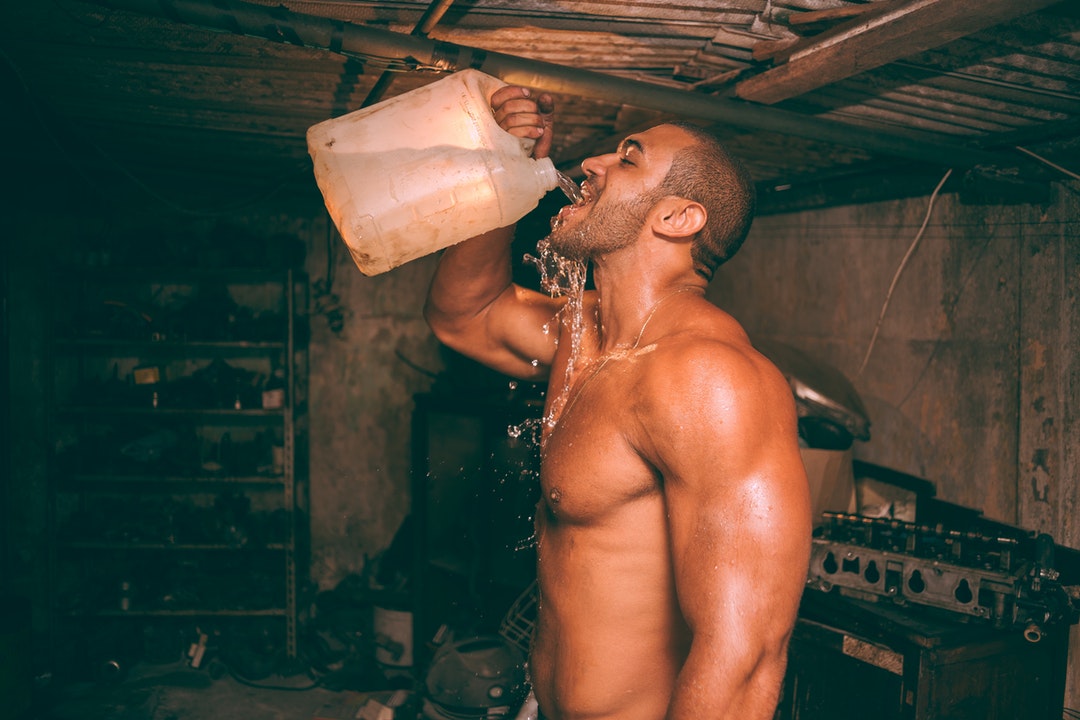
As an athlete, you likely already understand the importance of proper hydration before, during, and after a workout.
That being said, not everyone knows just how much to drink (or when to drink it). We’ve put together a quick primer on the subject to help.
So, how much water should an athlete drink? Read on!
How Much Water Should an Athlete Drink?
Of course, everyone will have a slightly different recommendation, as the perfect amount of water to drink depends on body mass, sex, and workout intensity. However, here’s a general rule of thumb.
About two hours before you exercise, aim to drink 20 ounces of water. Then, during your warm-up, drink eight more ounces. This ensures you’re starting your workout fully hydrated.
While exercising, drink around 8 ounces for every 20 minutes of exercise (or more frequently, if you are engaging in very strenuous exercise). Continue drinking water for about 30 minutes after your workout.
Many men and people with a higher BMI tend to need more water, as they have a larger body mass. Some people who have a tendency to sweat profusely should bump up the intake, too.
If you exercise in a very hot climate, it’s also smart to bump up the above recommendations.
Tap water is the easiest and least expensive option, provided it’s safe, pure water. If you drink tap water consistently, consider having it tested to ensure it’s completely safe. Learn more about why water testing is wise at Titleist Testing.
Why Do We Need So Much Water When Exercising?
Staying hydrated is key to a strong, productive workout. Approximately 60% of our weight is water! All of our organs and bodily processes need adequate hydration in order to function properly. It keeps our joints lubricated and, via sweat, regulates our body temperature.
If you work out while not fully hydrated, you won’t perform at your peak. It can be dangerous if you exercise to the point of dehydration, as your body is no longer able to regulate its core temperature.
Is It Possible to Drink Too Much Water?
If you exercise for 90 minutes or more at a time, plain water stops being enough. At the 90 minute mark, switch from water to a low-sugar sports drink or coconut water.
This helps your body maintain the correct balance of electrolytes and prevents hyponatremia, a dangerous condition caused by too little sodium in the blood.
Hyponatremia can cause vomiting, headaches, confusion, and seizures. If left untreated, it can be fatal. If you suspect hyponatremia, contact a doctor immediately or visit urgent care.
Always make sure to replace lost electrolytes during and after an intense workout!
Looking for More Great Exercise Tips?
So, how much water should an athlete drink? This article shows you there are rules of thumb to follow, but no hard and fast rules.
However, proper hydration is one small (but very important!) part of your exercise routine. Always consume enough water at key times to ensure you’re getting the best, most productive workout each time. You’ll get to know your body and your routines enough to feel when you’re not getting enough fluids.
For other great advice and tips on maximizing your exercise, check out our comprehensive athlete training blog!
